The
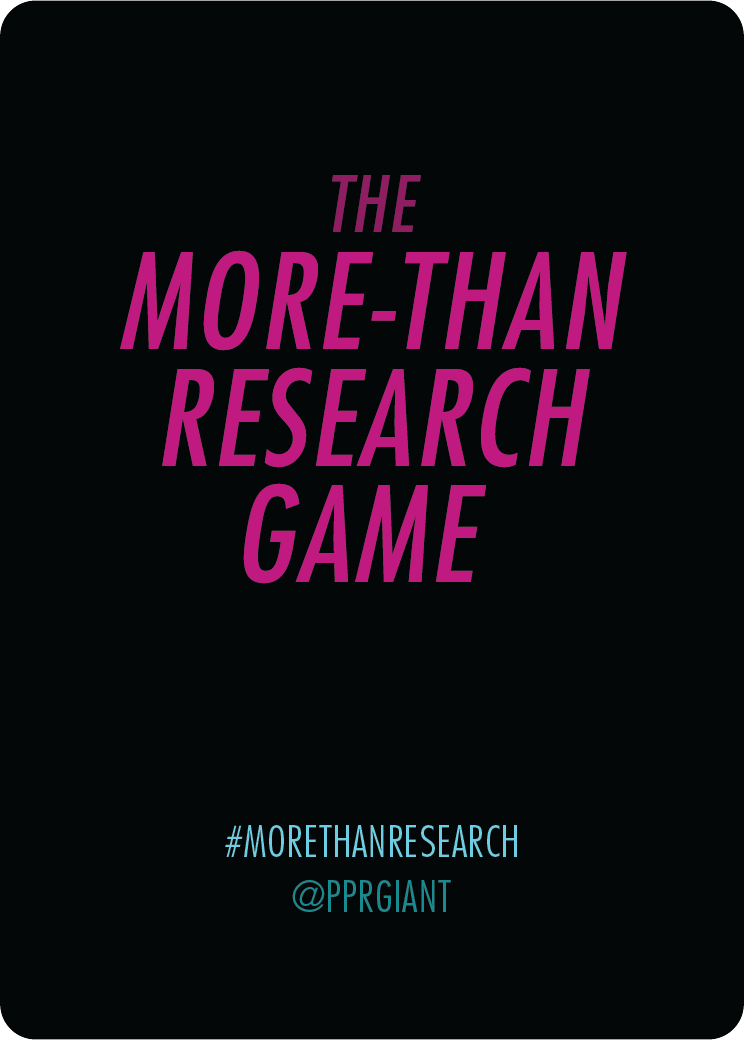

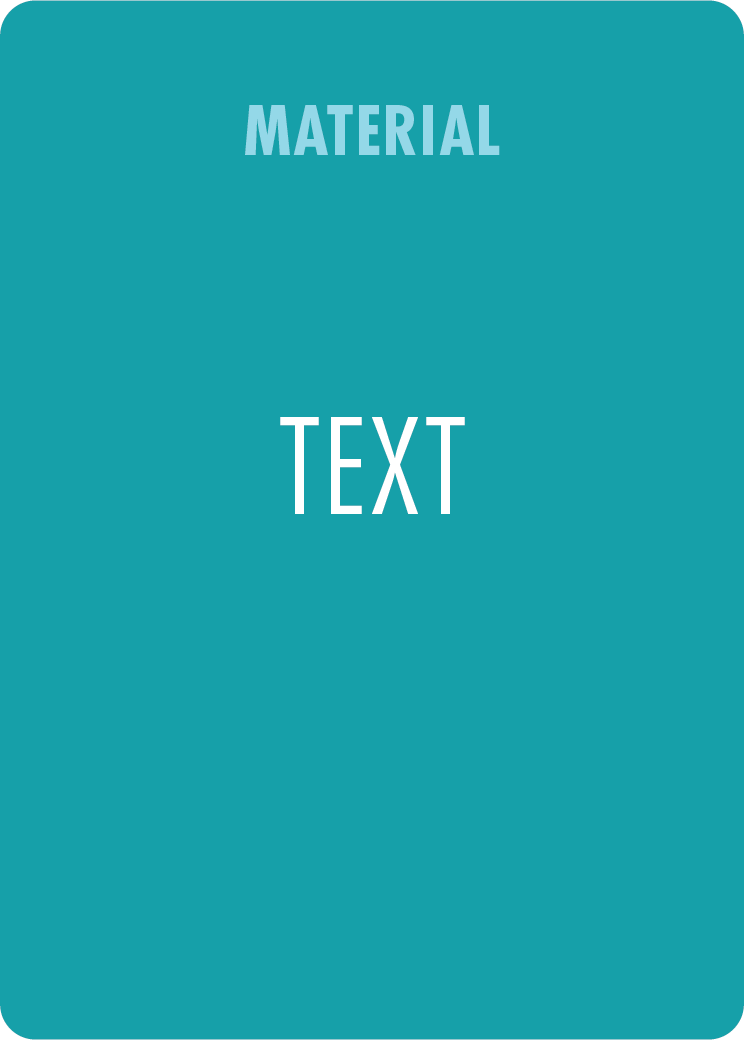
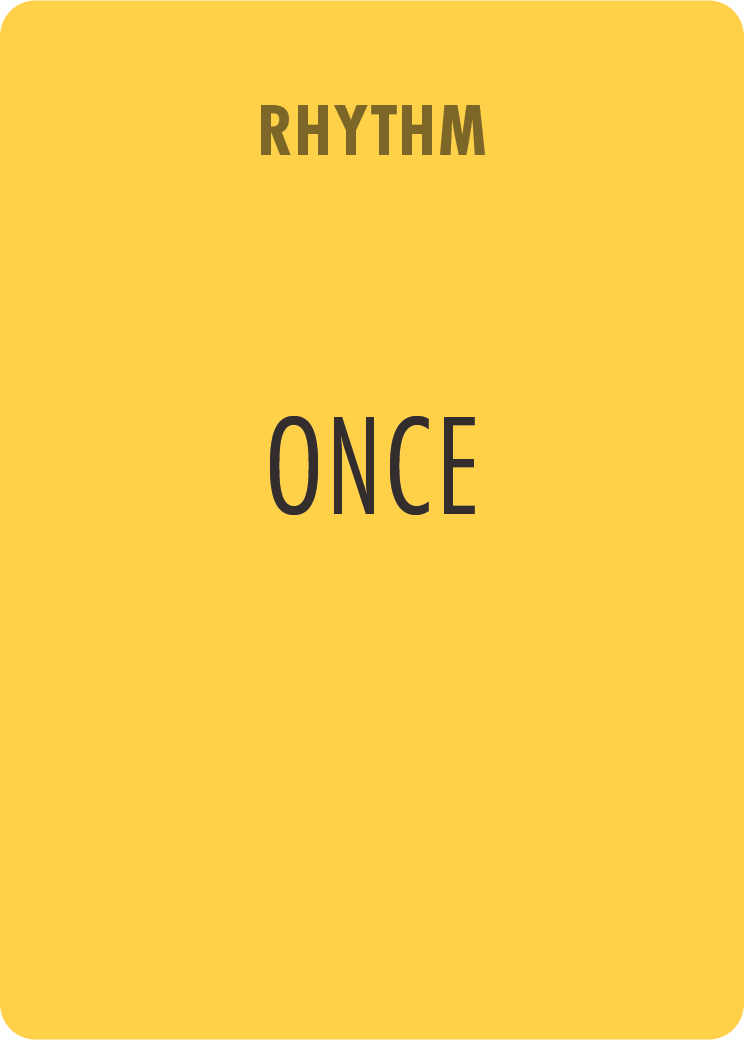
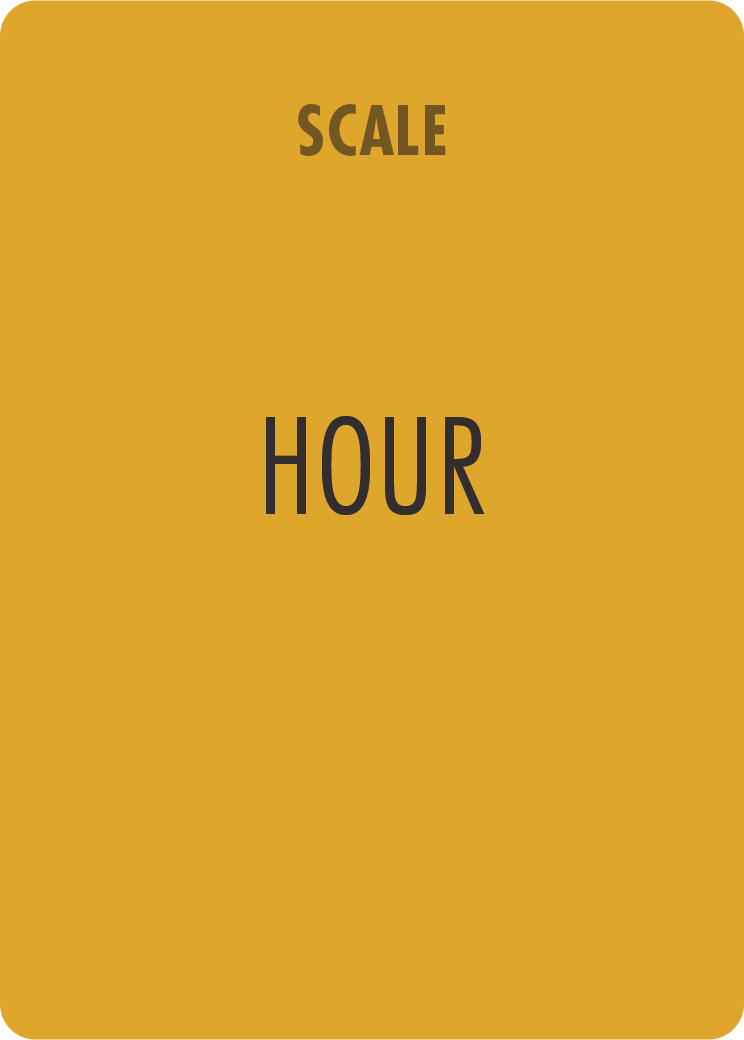
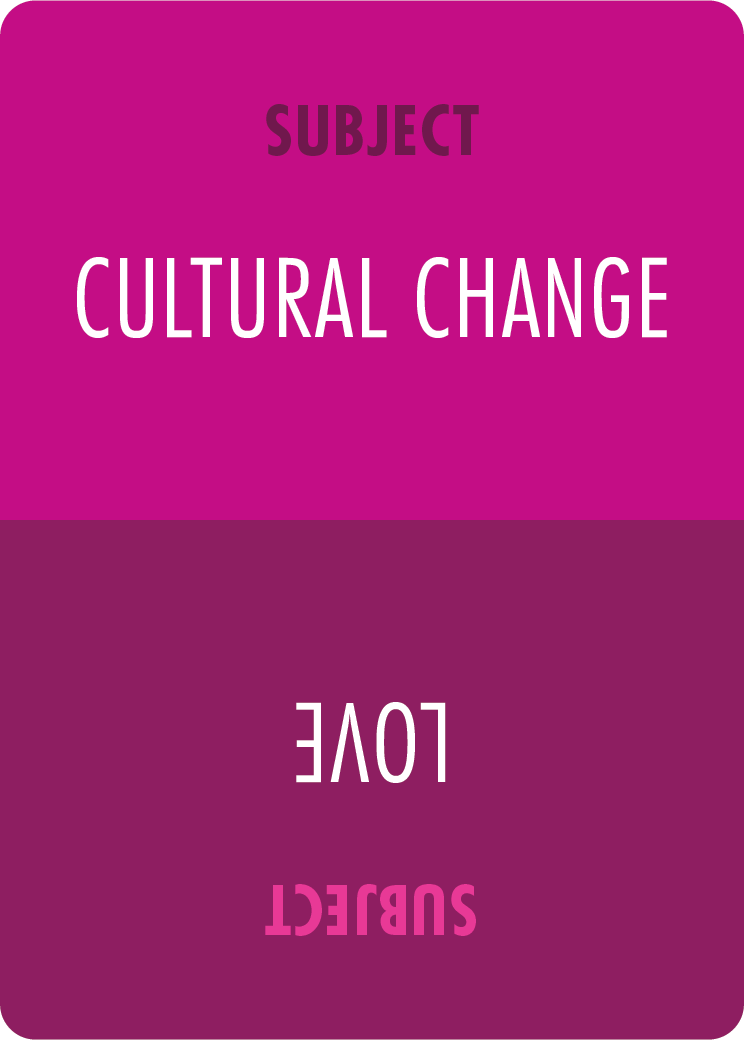
The More‐Than Research Game helps you rethink your approach to research
The Cards
The More-Than Research Game is a deck of 137 cards


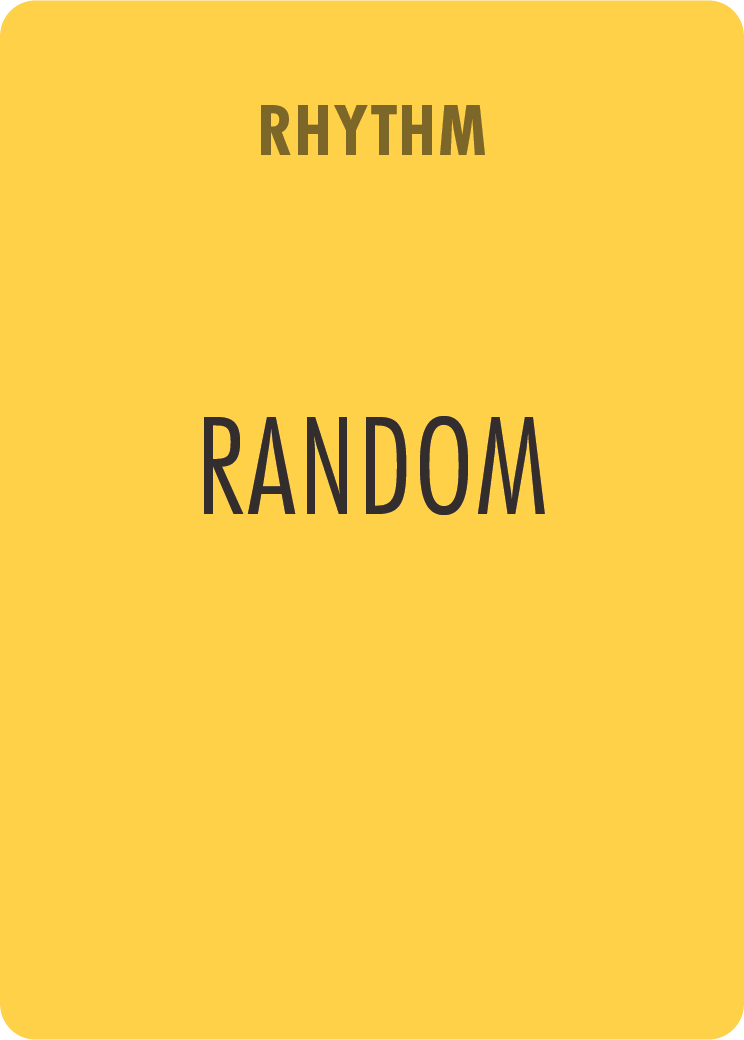
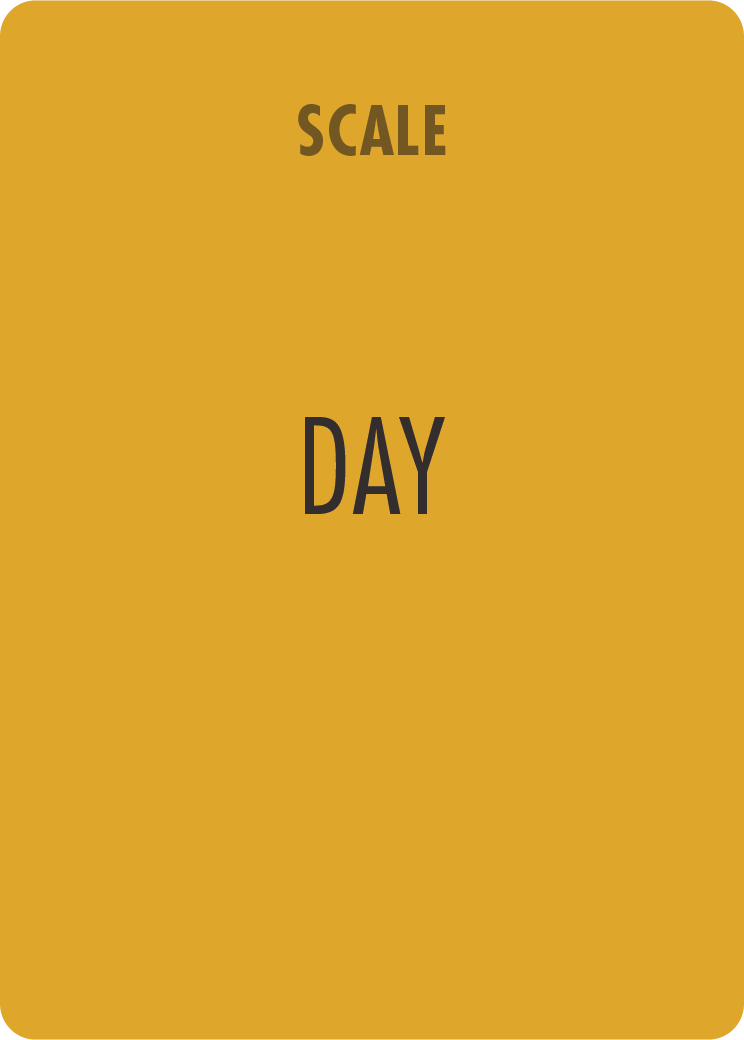
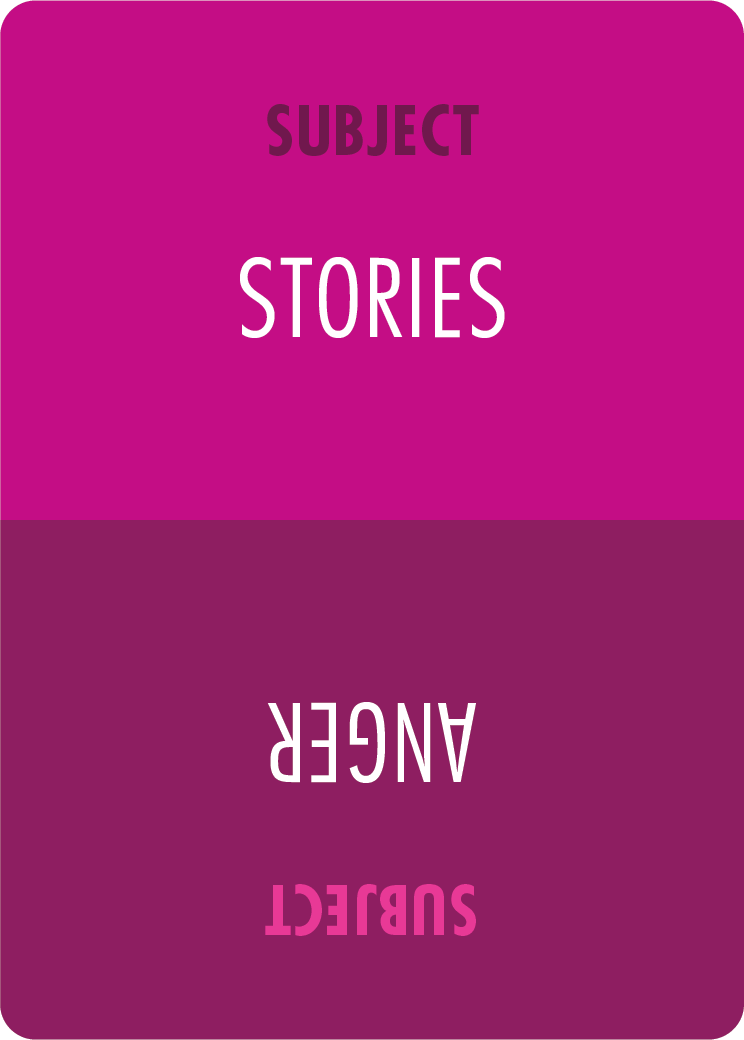
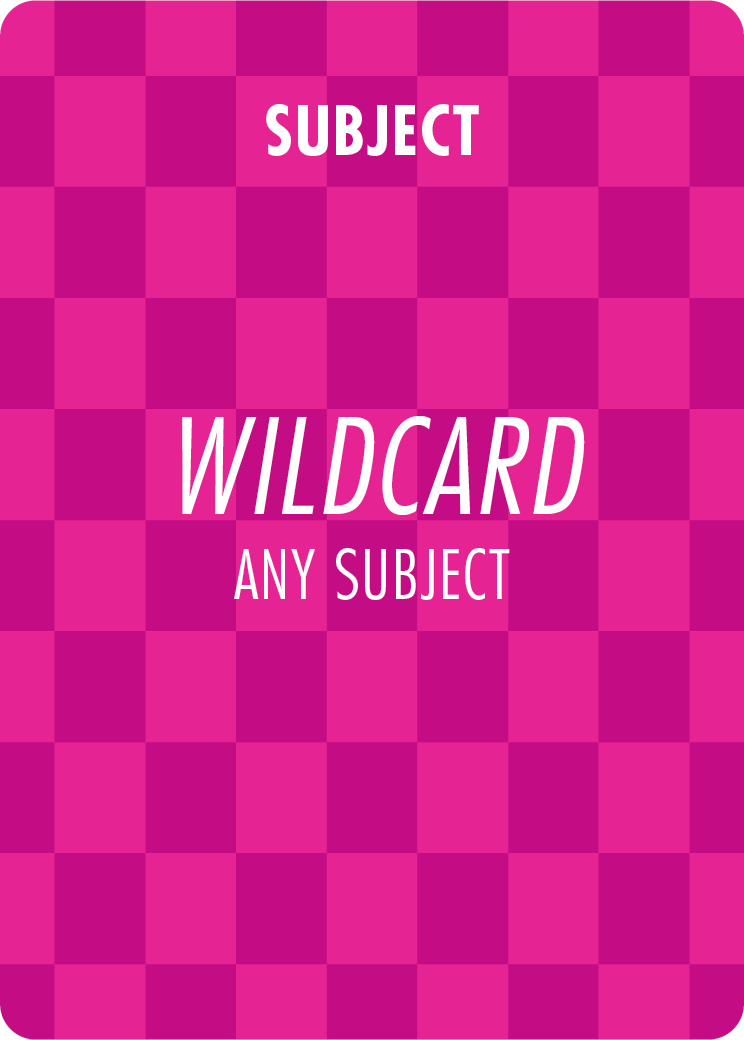
26 × Perspective Cards
Perspective cards provide you with a ‘point of view’ for your research ‐ the person, thing or organisation your project will look from.
24 × Material Cards
Material cards describe the 'format' in which your research or data may be recorded, captured, or produced.
24 × Rhythm Cards
Rhythm cards bring time to your prompt, and can be paired with any other card to add frequency.
27 × Scale Cards
Scale cards talk to the size or scope of some aspect of your research. You can pair a scale card with any other card to add focus to your prompt.
28 × Subject Cards
Subject cards provide you with an topic of study ‐ where your project will look to.
8 × Wildcards
The pack contains 4 subject wildcards, plus one wildcard for each other card type. These allow you to come up with your own perspectives, materials, rhythms, scales and subjects.
How to Play
The More-Than Research Game is designed for 2 to 5 players. The aim is to create research prompts, that help you think about, or rethink, a research project.
1. Setup
- Shuffle the deck thoroughly.
- Start by choosing a dealer, and deal each player 12 cards.
- Place the deck face down on the table.
2. The Round
Each round of the game consists of two parts: creating a prompt, and a 5 minute discussion.
Create a prompt
Starting with the player to the left of the dealer, players take turns placing a card face up in the center of the table to create a prompt. A complete prompt consists of 5 cards, one of each colour.
- Players take turns to play a card of a colour that is not already face up on the table.
- Subject cards may be played either way up. The player who deals the subject card must state which subject they are playing.
- If a player doesn't have a card of a suitable colour, they may pick cards one at a time from the top of the deck until a suitable colour is found (discarding any others), or they may pass and wait until the next round.
The interpretation of each prompt is up to you.
Example: repeated, minute-long audio peices, that take a machine perspective of landscape:
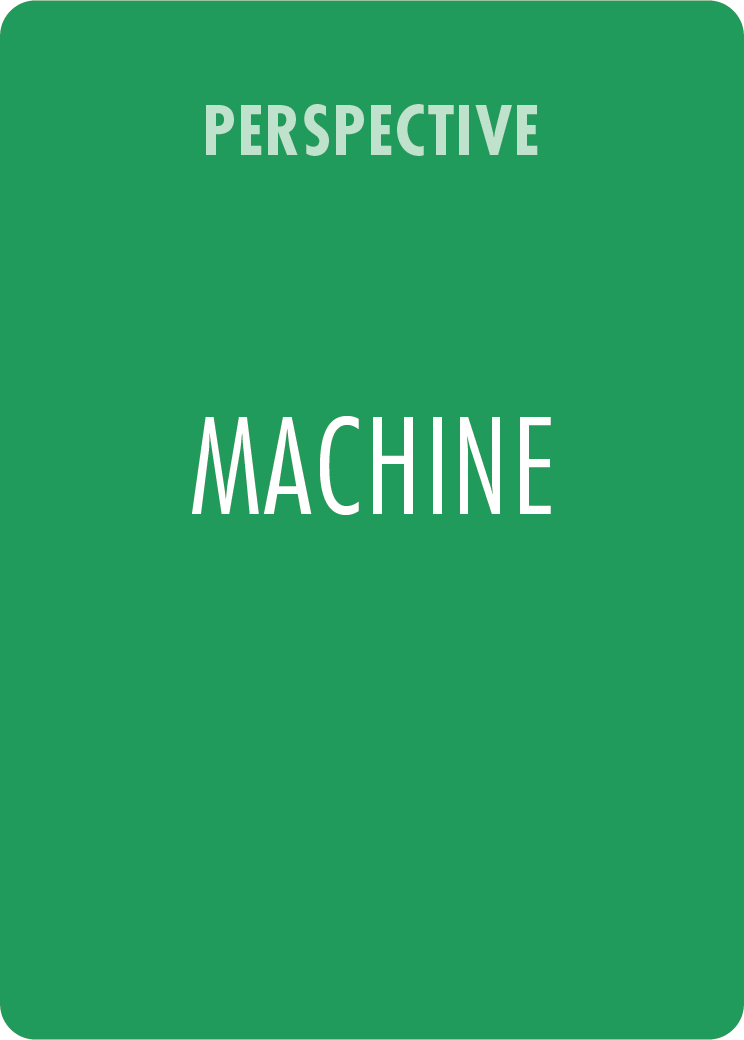
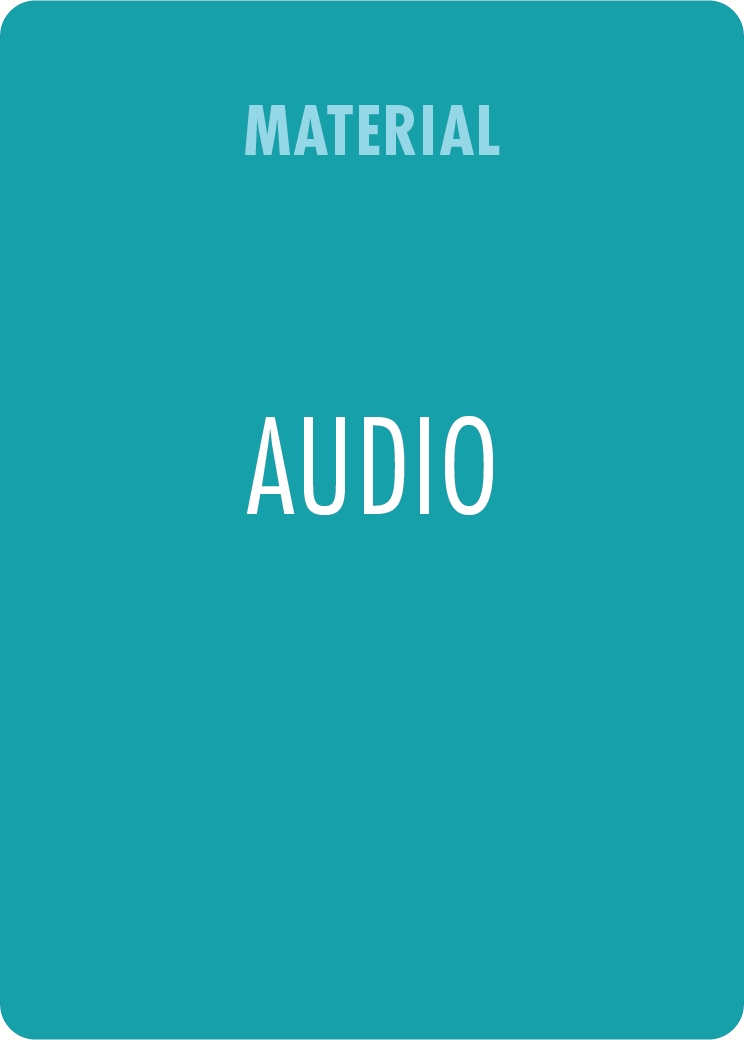
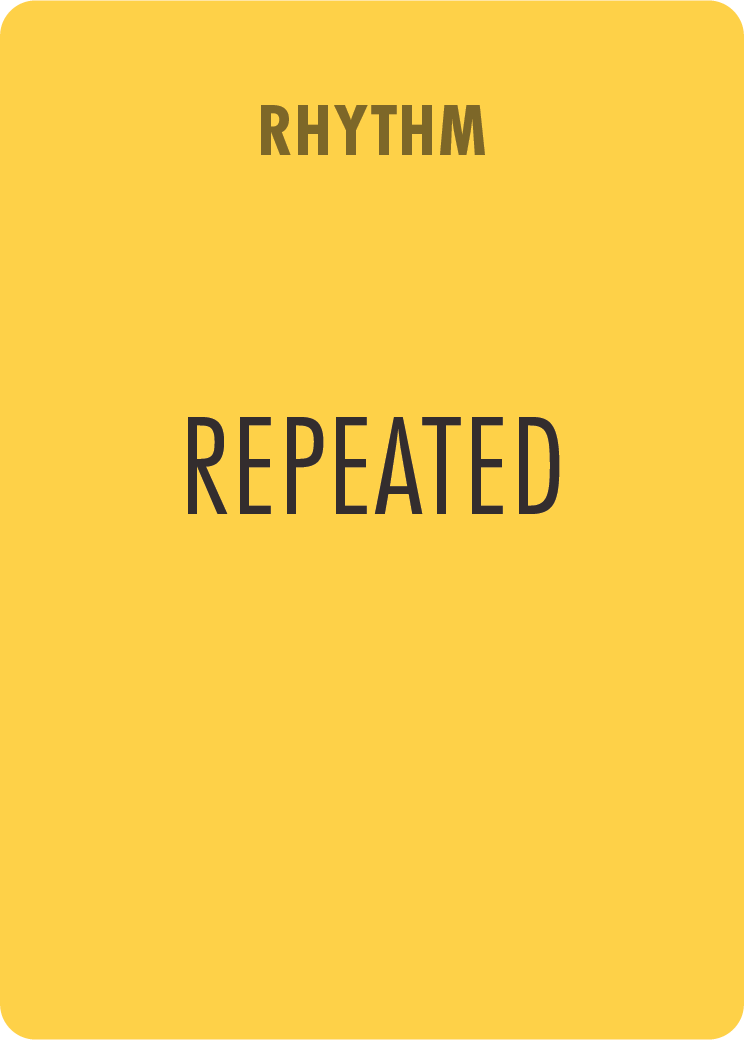
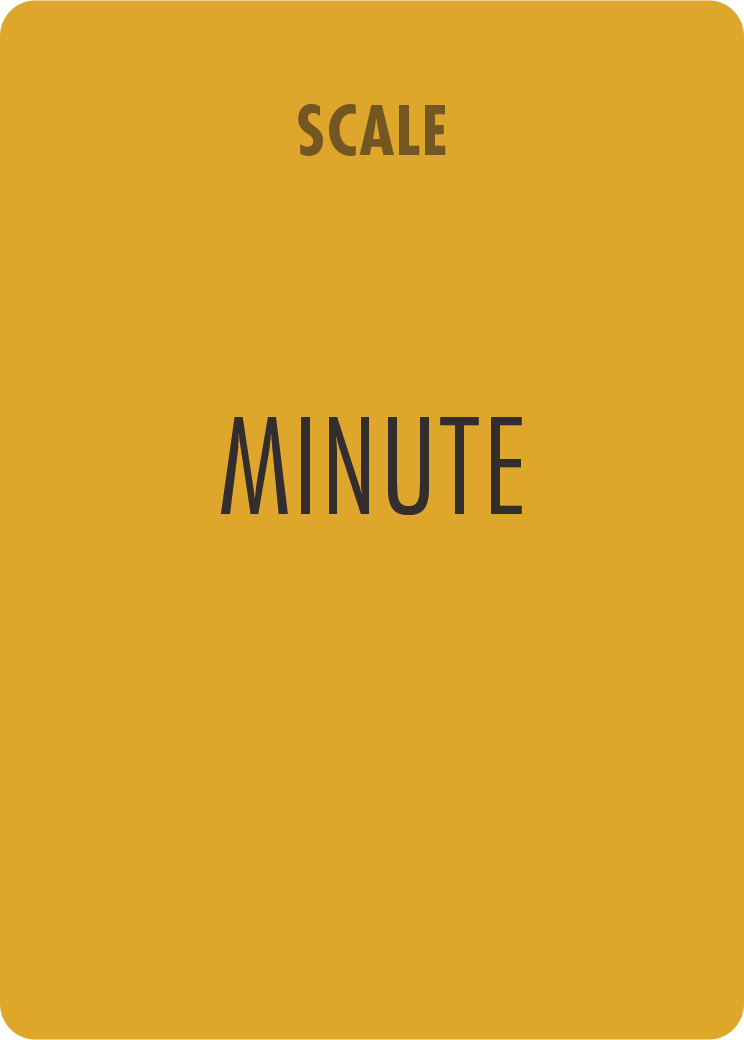
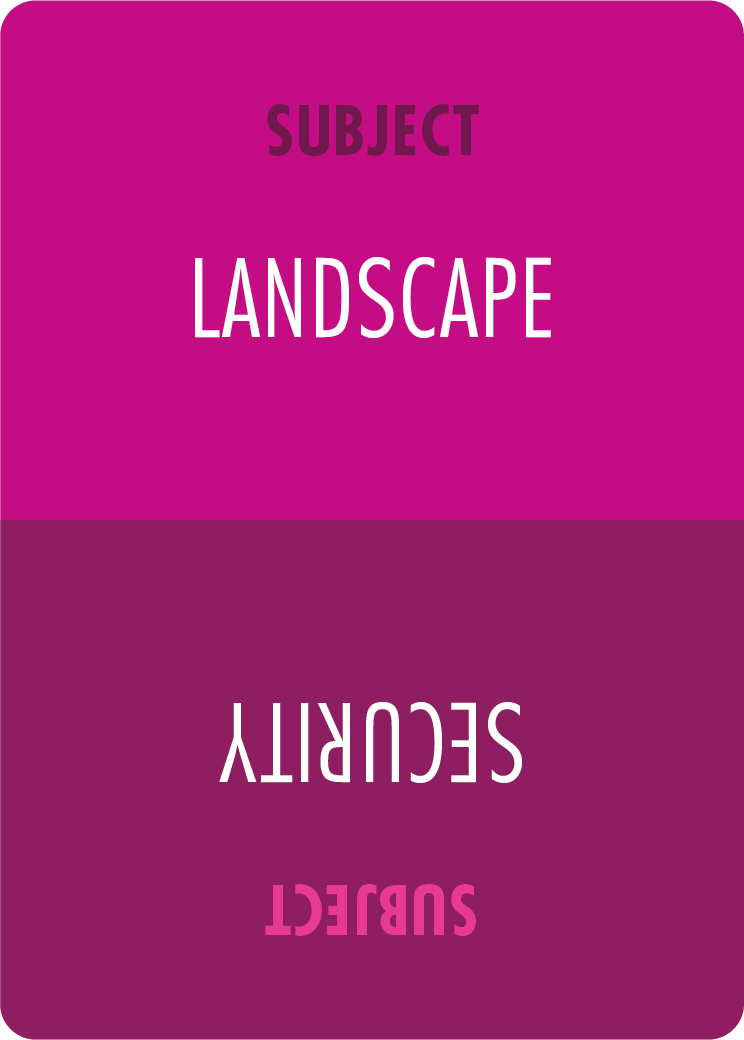
Once the prompt is complete, move on to the discussion.
Discussion
Once a prompt is complete, take 5 minutes (use a timer if required) to interpret the prompt and discuss what it inspires for your research.
- Starting with the player who played the last card, each player should each take a turn to interpret the prompt.
- Players decide which is the most interesting interpretation of that prompt.
- The player whose interpretation is the most interesting wins the round.
Suggested discussion questions:
- What kinds of research activity does the prompt suggest?
- What kinds of data could be collected?
- How might you carry out research according to the prompt?
Tips for interpreting
If a particular term doesn't seem to fit your context, try and make it fit! This is where the unexpected can arise. What is the landscape of an office? What is the craft of governance?
Also consider alternate readings of the prompt. In the example above, an alternate reading might be “repeated audio recordings of minute (very small) machines in a landscape”.
Once the discussion is over, set the prompt aside and start a new round.
3. Ending the Game
The game ends when one player runs out of cards, Or whenever you feel like it.
The winner is the player who won the most rounds. But really, everyone wins!
Share your prompts
Use the hashtag #morethanresearch to share photos of your prompts across your social media of choice. We can't wait to see them!
About the Game
Paper Giant created The More-Than Research Game to provide students, researchers and designers with a way of thinking differently about the design of their research, their methodologies and their data.
We passionately believe in the ability of research and design to open up possibilities – not just provide answers – and we hope that these prompts will inspire more questions than answers.